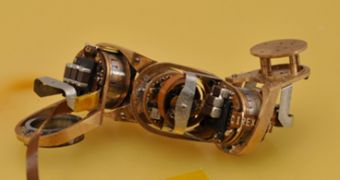The Massachusetts Institute of Technology, MIT for short, always seems to have something up its sleeve, and its latest invention, reliant on magnets, definitely reinforces that belief.
MIT has essentially created a new type of robot, though the word doesn't exactly describe what the product is and does.
Essentially, it is a small contraption made of centimeter-long modules that change shape and connect to one another using a magnetic motor.
The parts are electropermanent, which means that energy is only consumed during the transformation phase. The shape is held without additional power.
In theory, the technique should be able to allow a sufficiently sophisticated "milli-motein," as the robot is called, to take any three-dimensional shape just by folding a string of matter.
At least, this is what a research paper published last year said. Basically, one should be able to fold a string of matter into any shape, just as, in nature, proteins bond together in order to form various organic shapes.
“We showed that you could make such a universal system that’s very simple,” said Kenneth Cheung, a visiting scientist Ara Knaian and postdoctoral associate.
The MIT team, led by Neil Gershenfeld, head of MIT’s Center for Bits and Atoms, is exploring avenues for applying the theoretical and practical knowledge gained after this successful experiment.
It should be possible to adapt the idea to smaller and larger inventions, from nanoassemblers to human-sized strings.
Naturally, the ultimate goal is to create small (at first), durable strong and cheap transforming robots. Milli-moteins can become building “blocks” for all kinds of machines.
One might worry about the magnetic interference that so many magnets can cause to electronics, but by the time milli-moteins are ready for practical applications, technology should have already reached a stage where electronics are shielded or unaffected by it.

 14 DAY TRIAL //
14 DAY TRIAL // 